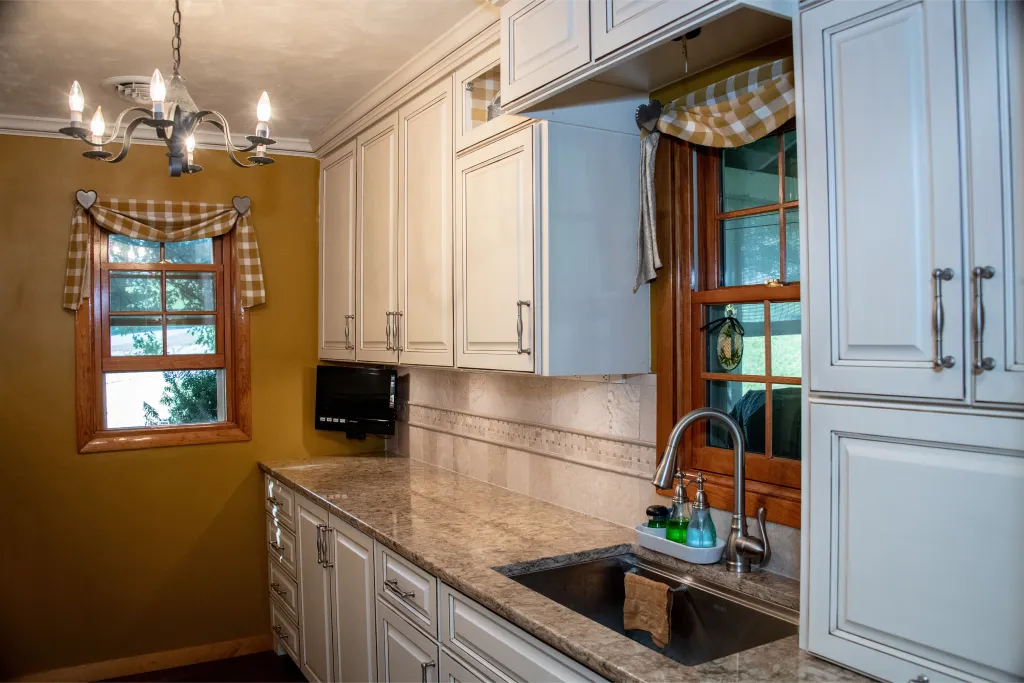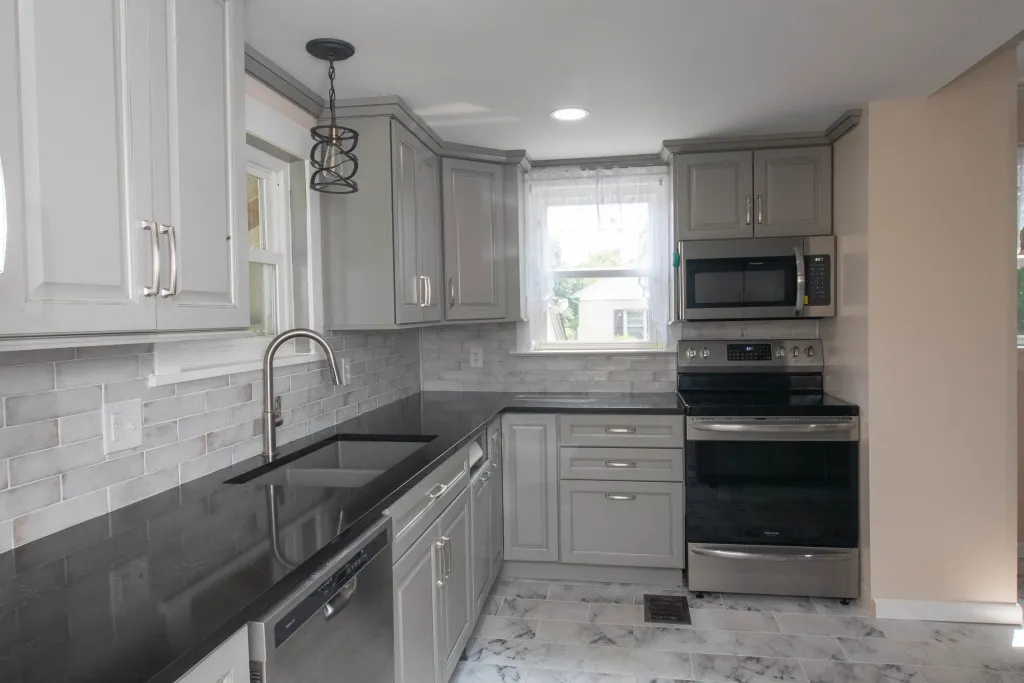Which Material is Best for My Kitchen Countertop?
Choosing the right kitchen countertop is a critical decision in designing or renovating your kitchen. Your choice impacts not only the aesthetic appeal of your space but also its functionality and durability. With numerous options available, it's essential to weigh the pros and cons of each type to determine the best fit for your needs. Here’s a comprehensive look at the most popular kitchen countertop materials:
1. Granite Countertops
Pros:
- Durability: Granite is incredibly durable and can withstand high heat, making it perfect for busy kitchens.
- Variety: Available in a wide range of colors and patterns, each slab of granite is unique.
- Resale Value: Granite countertops can enhance the value of your home due to their premium appearance.
Cons:
- Cost: One of the more expensive options, both in terms of material and installation.
- Maintenance: Requires periodic sealing to prevent stains and maintain its appearance.
- Weight: Heavy material that often requires reinforced cabinetry for support.

2. Quartz Countertops
Pros:
- Non-Porous: Unlike granite, quartz is non-porous, making it resistant to staining and bacterial growth.
- Low Maintenance: Does not require sealing and is easy to clean with mild soap and water.
- Uniform Appearance: Engineered quartz offers a consistent look, which is ideal for those who prefer uniformity.
Cons:
- Cost: Similar to granite, quartz can be quite expensive.
- Heat Resistance: While durable, quartz can be damaged by excessive heat, so hot pans should not be placed directly on the surface.
- Appearance: Some people feel quartz lacks the natural look of stone because it is engineered.
3. Marble Countertops
Pros:
- Aesthetics: Marble offers a timeless and luxurious appearance, making it a favorite for elegant kitchen designs.
- Cool Surface: Naturally remains cool, which is ideal for baking and working with dough.
Cons:
- Porosity: Highly porous and prone to staining and scratching, requiring regular sealing.
- Durability: Softer than granite and quartz, making it more susceptible to damage.
- Cost: Can be quite expensive both to purchase and maintain.

4. Laminate Countertops
Pros:
- Affordability: One of the most budget-friendly options available.
- Variety: Comes in a vast array of colors and patterns, mimicking more expensive materials.
- Ease of Installation: Lightweight and easy to install, making it a good DIY project.
Cons:
- Durability: Susceptible to scratches, burns, and delamination over time.
- Resale Value: Does not add significant value to your home compared to natural stone options.
- Repair: Difficult to repair if damaged; typically, the entire section needs replacement.
5. Solid Surface Countertops (e.g., Corian)
Pros:
- Seamless Look: Offers a smooth, seamless appearance with integrated sinks and backsplashes.
- Repairable: Minor damage can often be sanded out, making it easy to maintain.
- Non-Porous: Resists stains and bacteria, ensuring a hygienic surface.
Cons:
- Heat Resistance: Can be damaged by hot pots and pans, requiring the use of trivets.
- Appearance: While it can mimic stone, it is not as natural-looking as real stone surfaces.
- Cost: Mid-range pricing, more expensive than laminate but less than natural stone.
6. Butcher Block Countertops
Pros:
- Warmth: Adds a warm, natural look to the kitchen, making it feel cozy and inviting.
- Repairable: Scratches and dents can be sanded out, and the surface can be refinished.
- Versatility: Can be used for food preparation directly on the surface.
Cons:
- Maintenance: Requires regular oiling to maintain its appearance and prevent drying out.
- Durability: Prone to scratches and water damage if not properly maintained.
- Bacterial Concerns: Wood can harbor bacteria if not cleaned properly.
7. Concrete Countertops
Pros:
- Customizable: Highly customizable with a variety of color and texture options.
- Durability: Very durable and heat-resistant, suitable for busy kitchens.
- Unique Look: Provides a modern, industrial aesthetic.
Cons:
- Cracking: Can develop hairline cracks over time due to natural shrinkage.
- Maintenance: Requires regular sealing to prevent stains and water damage.
- Cost: Can be expensive, especially with custom finishes and design elements.
Which Countertop Material is Best for You?
Selecting the right kitchen countertop involves balancing your aesthetic preferences, functional needs, and budget constraints. Each option has its own set of pros and cons, which will depend on your preferences and how you use your kitchen. Here at Bassett Homes, we can walk you through the design process to help you select the best kitchen countertop for you. Schedule a completely free consultation with us today to hear more about the products we offer and how we can help make your dream kitchen a reality!
